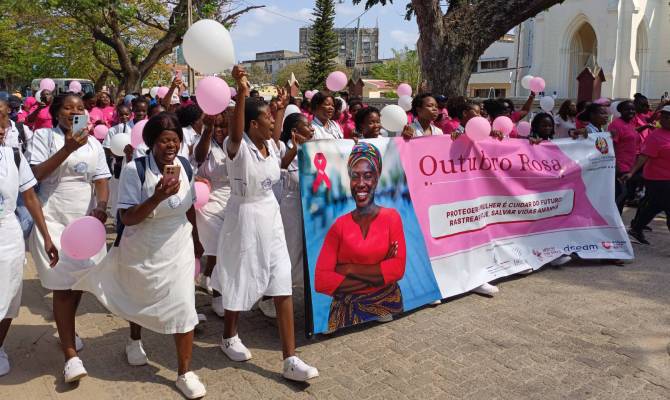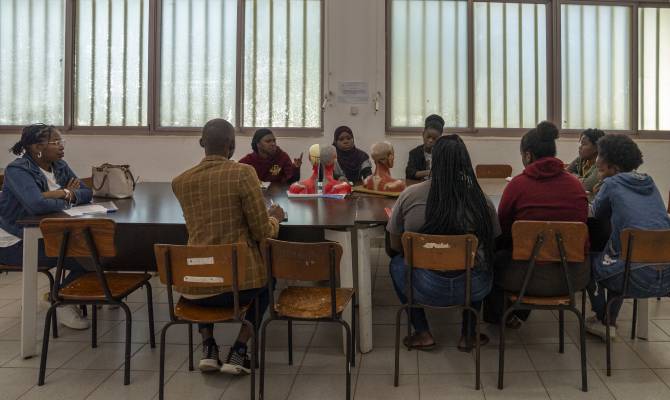This past weekend, Mozambique was awash in shades of pink as CUAMM teams in the provinces of Zambézia and Sofala joined the world in celebrating Outubro Rosa – Pink October, the annual campaign dedicated to raising awareness about breast and cervical cancer.
Under the theme “Protecting women is caring for the future: screen today, save lives tomorrow!”, communities came together to promote prevention, early diagnosis, and women’s well-being through two vibrant days of activity.
In Quelimane, Zambezia province, the Provincial Health Department led a celebration hosted at Licungo University, where participants—including students, teachers, and health professionals—engaged in open discussions about risk factors, warning signs, prevention, and treatment pathways.
The event was attended by high-level representatives, including the First Ladies of the Province and District, university leaders, and local health authorities. The day featured educational talks on cervical and breast cancer, led by qualified health experts, alongside cultural performances by the Nhambaro group, exhibitions of local health services, and closing remarks from the Provincial First Lady, who underscored the importance of prevention as a collective responsibility.
Meanwhile, in Beira, a pink wave of energy filled the streets as women and men marched together towards a large health fair held at the city’s sports pavilion. The event combined aerobics sessions, free screenings, theatre performances, and community dialogues, turning awareness into action.
These activities were part of the noncommunicable diseases (NCDs) project, led by CUAMM in partnership with AIFO and ACAP – Sant’Egidio, and supported by the Italian Agency for Development Cooperation (AICS).
Prevention is at the heart of this new initiative, which builds on the experience developed with the support of AICS and aims to consolidate the progress achieved while expanding its impact across the provinces of Maputo, Sofala, and Zambezia. The intervention seeks to strengthen the Mozambican health system’s response to non-communicable diseases (NCDs) – such as hypertension, diabetes, and cervical cancer – which are among the leading causes of morbidity, disability, and mortality in the country.
This renewed commitment now involves 20 health units, including 14 that were already part of the previous phase and 6 newly added ones, along with three referral hospitals responsible for managing the most complex cases. The activities focus on improving access to quality prevention, diagnosis, and treatment services by enhancing human and material resources, reducing architectural barriers, and ensuring continuity of care. At the same time, the project will strengthen the capacity of the Mozambican Ministry of Health (MISAU) in epidemiological surveillance and NCD monitoring, contributing to better data collection and use to inform national health policies.
Pink October underscores the vital importance of prevention and early detection in the fight against breast and cervical cancer, as they greatly increase the chances of a successful and complete recovery. By raising awareness of risk factors, encouraging regular screenings such as mammograms, and fostering open conversations that break down fear and stigma, we can empower individuals to take charge of their health. These efforts are especially critical in vulnerable and resource-limited settings, where access to timely care can make the difference between life and loss.





